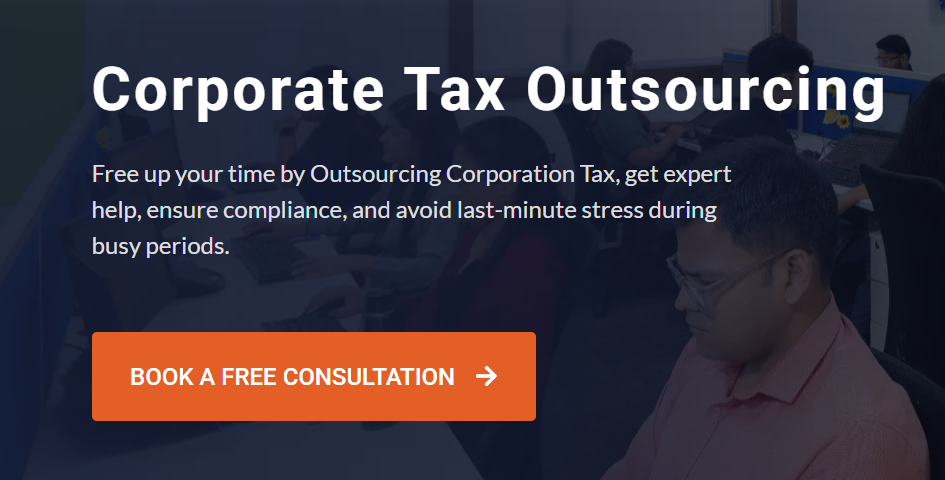Tax Return Preparation: Why It’s More Than Just a Yearly Task

Strong 8k brings an ultra-HD IPTV experience to your living room and your pocket.
When it comes to managing personal or business finances, Tax Return Preparation stands as one of the most critical responsibilities of the year. While many view it as a once-a-year obligation, the truth is, successful tax preparation is a year-round process that requires planning, accuracy, and awareness. Whether you’re an individual taxpayer, a self-employed professional, or a small business owner, preparing your taxes properly can make a major difference in your financial well-being.
Understanding the Basics of Tax Return Preparation
Tax return preparation is the process of gathering, reviewing, and submitting financial data to tax authorities to determine how much tax you owe—or what refund you’re entitled to receive. This includes documenting income, claiming deductions, reporting investments, and staying compliant with both federal and state tax laws.
While tax software and online platforms have made it easier to file returns, the complexity of modern tax codes means that many people still struggle to complete their returns accurately. Simple errors can delay refunds, trigger audits, or even result in fines.
Why Tax Return Preparation Shouldn’t Be Left Until the Last Minute
Procrastinating on tax return filing is common, but it’s also risky. Rushing through forms in the days leading up to the deadline increases the chances of missing valuable deductions or making reporting mistakes. More importantly, last-minute filers often fail to gather all necessary documents—like 1099s, W-2s, investment statements, or expense receipts—which leads to incomplete or incorrect submissions.
By contrast, starting early gives you time to consult professionals, organize your paperwork, and optimize your filing strategy—whether your goal is to reduce tax liability or increase your refund.
Common Mistakes in Tax Return Preparation
Even experienced taxpayers can make costly errors when preparing returns. Here are some of the most common pitfalls:
Incorrect or missing information: Typos in your name, Social Security Number, or bank details can delay refunds.
Forgetting to report all income: Income from freelance work, side gigs, or rental properties must be included.
Overlooking deductions and credits: Many taxpayers miss out on valuable deductions like student loan interest, home office expenses, or charitable contributions.
Filing under the wrong status: Your filing status can significantly impact your tax rate. Choosing the wrong one could lead to overpayment.
Mathematical errors: Manual calculations are a frequent source of trouble, even when using software.
Avoiding these mistakes requires more than technical know-how; it calls for attention to detail, thorough documentation, and often, professional guidance.
Who Should Consider Hiring a Tax Professional?
While basic tax situations can often be handled with DIY software, there are many cases where hiring a professional is the smarter choice:
Self-employed individuals and freelancers with complex income streams.
Property owners who need to report rental income and expenses.
Investors who trade stocks, bonds, or cryptocurrency.
Small business owners managing payroll, overhead, and business deductions.
Anyone dealing with international income or foreign asset reporting.
A certified tax professional not only ensures accuracy but can also offer strategic advice to reduce your future tax burden. Their expertise is especially valuable in navigating audits, responding to IRS notices, and planning for major life changes like marriage, retirement, or buying a home.
How to Prepare for Tax Filing Season
Effective tax return preparation begins with organizing your documents. Start by gathering:
Income statements (W-2s, 1099s, K-1s, etc.)
Investment and dividend summaries
Mortgage and student loan interest forms
Receipts for deductible expenses
Last year’s tax return (for reference)
It’s also wise to keep a tax folder throughout the year where you can store receipts, donation records, and other documents as they come in. This makes preparation easier and ensures nothing is overlooked.
Tax Return Preparation for Small Business Owners
For entrepreneurs and small business owners, tax filing can be especially daunting. From tracking income and expenses to managing employee payroll taxes and quarterly estimated payments, business taxes are layered with responsibilities.
Here’s where professional help becomes almost essential. A tax advisor can:
Help categorize business expenses correctly
Identify industry-specific deductions
Prepare and file quarterly estimated taxes
Assist with bookkeeping and financial statements
Ensure compliance with state and federal tax obligations
Additionally, tax professionals can guide you on how to structure your business—such as operating as an LLC, S-Corp, or sole proprietorship—for optimal tax efficiency.
The Relationship Between Tax Planning and Preparation
Tax return preparation is just one part of a broader financial strategy. While preparation focuses on filing taxes correctly for the prior year, tax planning involves looking ahead and making smart decisions throughout the year to reduce tax liabilities.
Examples of effective tax planning include:
Increasing retirement contributions
Timing business purchases for maximum deductions
Using health savings accounts (HSAs)
Harvesting investment losses to offset gains
Working with a tax advisor year-round can help you make informed choices that reduce your tax burden in the long run.
Digital Tools and Their Limitations
Today’s market is full of tax software designed for do-it-yourself filing. Platforms like TurboTax, H&R Block, and TaxAct offer guided instructions, built-in calculators, and automatic error checks.
While these tools are incredibly useful for standard filings, they have limitations. They often use a one-size-fits-all approach and may not catch less obvious deductions or provide personalized advice. They also can’t replace the insight of a seasoned tax expert when dealing with complex issues like audit representation or multi-state filings.
Tips for a Smooth Tax Filing Process
To reduce stress and avoid last-minute surprises, follow these tips:
Keep records organized year-round. Don’t wait until January to start looking for receipts and statements.
Know the deadlines. Federal tax returns are usually due in April, but state deadlines may vary.
Review changes in tax law. Deductions, credits, and thresholds may shift from year to year.
Plan for life changes. Marriage, children, job changes, and home purchases can all affect your taxes.
Don’t guess—ask. If you're unsure about a rule or requirement, consult a tax professional rather than risking an error.
Final Thoughts: Don’t Underestimate the Value of Proper Preparation
The process of tax return preparation may seem like a burden, but it’s also an opportunity—to get organized, understand your finances, and make informed decisions about your money. Whether you choose to do it yourself or seek help from a professional, investing time in accurate preparation pays off in peace of mind, potential savings, and fewer headaches down the line.
Note: IndiBlogHub features both user-submitted and editorial content. We do not verify third-party contributions. Read our Disclaimer and Privacy Policyfor details.







